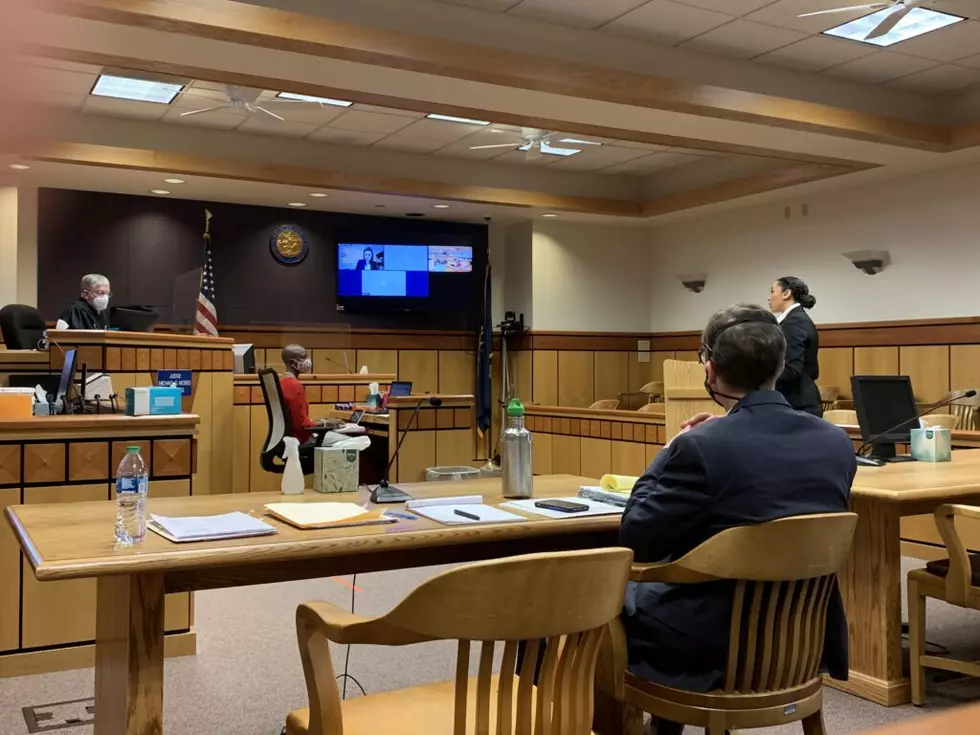
ACLU asks court to strike down emergency order, allow birth certificate changes
(Daily Montanan) The American Civil Liberties Union in Montana is asking a district court judge to immediately order the state’s Department of Public Health and Human Services to revert to a 2017 law allowing citizens to change the sex designation on a birth certificate with just a form and rule that the efforts to create an “emergency rule” to stop that were “bogus.”
On April 21, Yellowstone County District Court Judge Michael Moses ordered a temporary injunction against a law passed by the 2021 Legislature that required a judge’s order and proof of surgery in order to change a birth certificate.
A group of plaintiffs represented by the American Civil Liberties Union argued that the new law unfairly targeted transgender individuals and also was vague, for example, not specifying what type of “surgery” would meet the law’s requirement. Moses agreed and issued the temporary injunction, but the state took more than a month, telling citizens and the Daily Montanan that it was studying Moses’ order.
In late May, the state issued an “emergency rule” without public input that said no birth certificate in Montana could be changed, except in cases of a clerical error. In the court documents filed on Tuesday, the ACLU said that Moses’ order was clear: The law should have reverted back to the standard in place before the legislature’s bill was signed into law.
Furthermore, the ACLU argues that the Department of Public Health and Human Services’ adoption of an “emergency rule” isn’t legal, and it’s asking the court to declare it void, too. The ACLU is asking Moses to compel the state, including the DPHHS and the Department of Justice, to follow the 2017 regulations.
The Montana Attorney General’s Office, which is representing the state in the matter, declined to comment on the case, or offer its legal justifications for the emergency rule.
“In what might charitably be described as willful ignorance, (the state relies) on their purported confusion to just adopting an even more draconian policy deliberately intended to harm transgender Montanans,” the ACLU court brief said.
The ACLU brief also chronicles attempts the attorneys made behind the scenes to pressure the state to comply with Moses’ order, including calls and meetings with the attorneys from both sides. It stated that the two sides met at least three times after Moses made the ruling to allow birth certificate changes. In a May 23 meeting, the ACLU said it met with attorneys for the state who agreed that a preliminary injunction ordinarily means the law would revert back to the 2017 procedure, but that counsel “did not offer any justification for why, in this instance, defendants had not reverted to the status quo.”
Legal argument on top of another legal argument
The ACLU argued, in part of its brief, that the state had presented another faulty legal argument on top of its justification for the emergency rule. In other words, ACLU attorneys argued that even if the state DPHHS wanted to create an “emergency rule” in order to address the birth certificate controversy, it didn’t even follow the carefully prescribed guidelines in Montana law.
It said that under Montana code, an emergency rule may only be adopted “in circumstances that truly and clearly constitute an existing imminent peril to the public health, safety or welfare that cannot be averted or remedies by any other administrative act.”
Also, attorneys argue that the emergency rule allows an agency to cut out public comment in order to address an emergency, something that requires additional safeguards because of the state’s Constitutionally mandated right to participate and observe.
“The sufficiency of the reasons for finding imminent peril … is subject to judicial review upon petition by any person. The matter must be set for hearing at the earliest possible time and takes precedence over all other matters,” the law states.
The ACLU said that the state has ginned up the emergency.
“The temporary rule fails to meet these requirements. It does not describe any ‘imminent’ threat to public health, safety, or welfare. Defendants having a preliminary injunction entered … does not create such an imminent threat,” the brief said. “Nor does the fact that the parties who lost the motion claim not to understand what the Court has done. A motion for reconsideration or a stay or an appeal may all be appropriate where a party does not understand or agree with a court’s ruling, but a bogus emergency rule is not appropriate.”
Lawmakers call out administration
The new court filing also points out that lawmakers on the state’s Interim Committee on Children, Families and Health and Human Services sent a letter to DPHHS Director Adam Meier, complaining that the agency’s actions were “unlawful.” They also asked that the rule should be immediately rescinded.
It chided Meier and the department for “the unlawful misuse of emergency rulemaking to circumvent the democratic means of adopting rules that require citizen input, the consideration of expert evidence, and a deliberative process within the agency.”
“The defendants’ palatable contempt for the transgender individuals singled out by the Temporary Rule serves as a continued ‘painful and stigmatizing reminder of the State of Montana’s refusal to recognize them to be who they know themselves to be,’” the brief quoted from Moses’ order.
